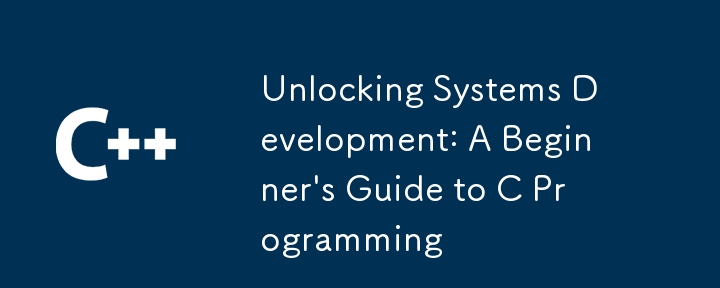
C is a systems programming language popular for its efficiency and low-level access. It provides basic syntax elements (data types, operators, control flow), data structures (arrays and structures), input/output processing (file processing and command line I/O), and practical cases (calculating the area of a circle through a program) , provides beginners with a guide to mastering the basics of C programming.

C is a widely respected systems programming language known for its high efficiency, low-level access, and cross-platform Known for platform compatibility. Designed for beginners, this tutorial will guide you on your journey to master the basics of C programming.
Data type:
Operator:
Control flow:
Array: stores a collection of elements of the same data type.
Structure: stores a collection of elements of different data types, forming a single unit.
File handling:
Command line I/O:
#include <stdio.h>
#define PI 3.14159265
int main() {
float radius;
printf("Enter the radius of the circle: ");
scanf("%f", &radius);
float area = PI * radius * radius;
printf("The area of the circle is: %.2f\n", area);
return 0;
}Usage:
circle_area.c and paste the code. gcc: gcc circle_area.c -o circle_area. ./circle_area. The above is the detailed content of Unlocking Systems Development: A Beginner's Guide to C Programming. For more information, please follow other related articles on the PHP Chinese website!
 Methods for reading and writing java dbf files
Methods for reading and writing java dbf files
 IIS unexpected error 0x8ffe2740 solution
IIS unexpected error 0x8ffe2740 solution
 The role of subnet mask
The role of subnet mask
 What programs can be developed with php
What programs can be developed with php
 How to export project in phpstorm
How to export project in phpstorm
 The role of applet tag in html
The role of applet tag in html
 The difference between unix and linux
The difference between unix and linux
 What to do if the installation system cannot find the hard disk
What to do if the installation system cannot find the hard disk




